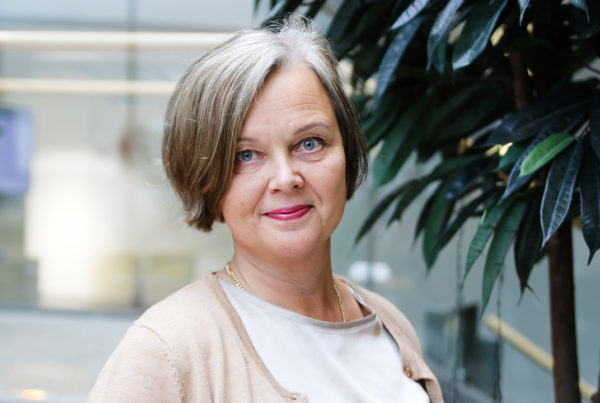“No one in their right mind would come to Helsinki in November”, stated this year’s catch line for the start-up event Slush – and yet they did. Last week, the sold-out conference gathered over 17,000 people from 124 countries under the same roof for two days.
Slush started in 2008 as an insider meeting for the hi-tech startup community. Today, this leading startup event in Europe has become a phenomenon that has a lot to offer – also for the fields of healthcare and pharmaceuticals.
Compared to previous years, Slush 2016 gave more space and visibility to the rising stars of the health industry. The speakers of the Slush health track represented different perspectives within the health ecosystem, ranging from medtech startups to big pharma and scientific institutions. In addition, HealthSPA, the health startup association of Finland, hosted a networking and panel discussion event that gained significant interest and doubled the number of participants from last year to around 600 attendees.
In the demo booth area, numerous health and medical startups showcased their innovations. As the huge banner of the University of Helsinki self-ironically announced:
This was “the rise of the boring startups” – science-based business ideas aimed at solving the huge, global problems.
Among these supposedly boring startups were university spin-offs such as ProVince TX developing a cancer vaccine and Nanoform producing pharmaceutical nanoparticles, as well as various digital healthcare solutions: Meru Health offering digital therapeutics for depression; AEvice Health with its BioAsthma monitoring device; Kaiku Health providing guidance for cancer patients; and Monidor developing an automated infusion monitor, just to mention a few.
Besides startups, this year’s Slush also featured some current topics from the academic field: Skolar Award Science Pitching Competition offered post-doctoral researchers an opportunity to present their groundbreaking research ideas. This year, the €100,000 grant went to Virpi Virjamo from the University of Eastern Finland: her work aims at developing novel antibiotics from spruce and pine to tackle the massively growing problem of antibiotic resistance.
Innovative startups are changing the traditional healthcare industry. Many of them are focusing on proactive rather than reactive approaches, which according to Ben Wiegand, Head of the Janssen’s Disease Interception Accelerator (DIA), will revolutionize future healthcare. According to Kemal Malik, Member of the Management Board at Bayer, two technologies presented at Slush 2016 will play a big role in this revolution: firstly, DNA editing (CRISPR in particular) and secondly, cell therapies.
For an entrepreneur, moving from consumer-targeted wellbeing apps to patient-centered treatment solutions is a giant leap. Indeed, the highly regulated medical industry provides huge challenges – but even bigger opportunities. Many of these opportunities are opened up by quickly evolving technologies. As Daniel Kraft, Chair for Medicine at Singularity University, put it in his speech:
“We need an exponential mindset when thinking about the technological development, because this evolution is not happening linearly but exponentially.”
At the moment, Dr. Kraft states, health technologies are moving from wearables to “insidables”.
However, as pointed out by Jordan Shlain, Founder of Healthloop, the concept of healthcare consists of multiple dimensions and functionalities, whereas the majority of existing applications only have a single functionality. This is a challenge – especially for startups with limited resources. Startups may benefit from partnerships with incumbents and institutions when their solutions need to be standardized and integrated into existing systems.
In the rapidly changing healthcare environment, opportunities need to be spotted quickly and acted on. This is something that agile startups are often more capable of doing compared to established companies. This has also been recognized by the health industry giants such as Bayer, IBM and GE Healthcare; also present at Slush, these companies were actively looking for partnerships from the start-up field and promoting their innovation funds and accelerators. These incumbents seek to partner up with startups developing technologies that enable gathering health and medical data, as well as high risk but potentially high reward medical ventures.
We are looking forward to see which of the future health and medtech stars will shine brightest in the coming years!




